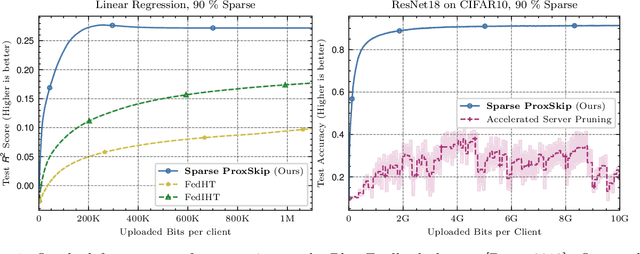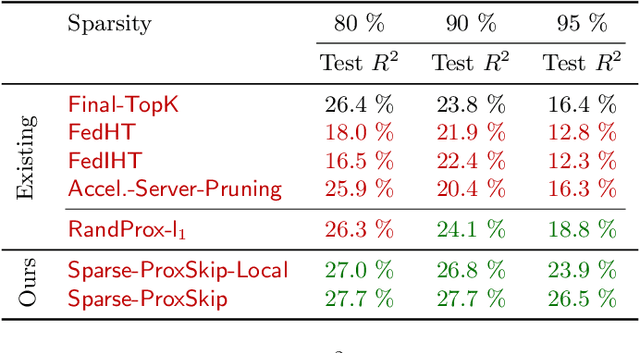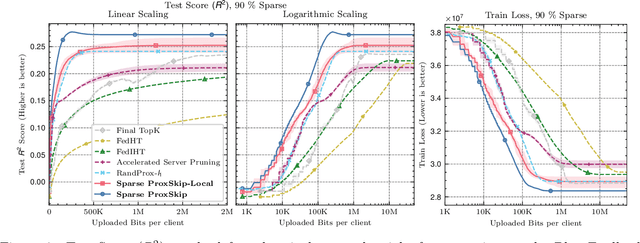Georg Meinhardt
Prune at the Clients, Not the Server: Accelerated Sparse Training in Federated Learning
May 31, 2024



Abstract:In the recent paradigm of Federated Learning (FL), multiple clients train a shared model while keeping their local data private. Resource constraints of clients and communication costs pose major problems for training large models in FL. On the one hand, addressing the resource limitations of the clients, sparse training has proven to be a powerful tool in the centralized setting. On the other hand, communication costs in FL can be addressed by local training, where each client takes multiple gradient steps on its local data. Recent work has shown that local training can provably achieve the optimal accelerated communication complexity [Mishchenko et al., 2022]. Hence, one would like an accelerated sparse training algorithm. In this work we show that naive integration of sparse training and acceleration at the server fails, and how to fix it by letting the clients perform these tasks appropriately. We introduce Sparse-ProxSkip, our method developed for the nonconvex setting, inspired by RandProx [Condat and Richt\'arik, 2022], which provably combines sparse training and acceleration in the convex setting. We demonstrate the good performance of Sparse-ProxSkip in extensive experiments.
FedComLoc: Communication-Efficient Distributed Training of Sparse and Quantized Models
Mar 14, 2024Abstract:Federated Learning (FL) has garnered increasing attention due to its unique characteristic of allowing heterogeneous clients to process their private data locally and interact with a central server, while being respectful of privacy. A critical bottleneck in FL is the communication cost. A pivotal strategy to mitigate this burden is \emph{Local Training}, which involves running multiple local stochastic gradient descent iterations between communication phases. Our work is inspired by the innovative \emph{Scaffnew} algorithm, which has considerably advanced the reduction of communication complexity in FL. We introduce FedComLoc (Federated Compressed and Local Training), integrating practical and effective compression into \emph{Scaffnew} to further enhance communication efficiency. Extensive experiments, using the popular TopK compressor and quantization, demonstrate its prowess in substantially reducing communication overheads in heterogeneous settings.
 Add to Chrome
Add to Chrome Add to Firefox
Add to Firefox Add to Edge
Add to Edge